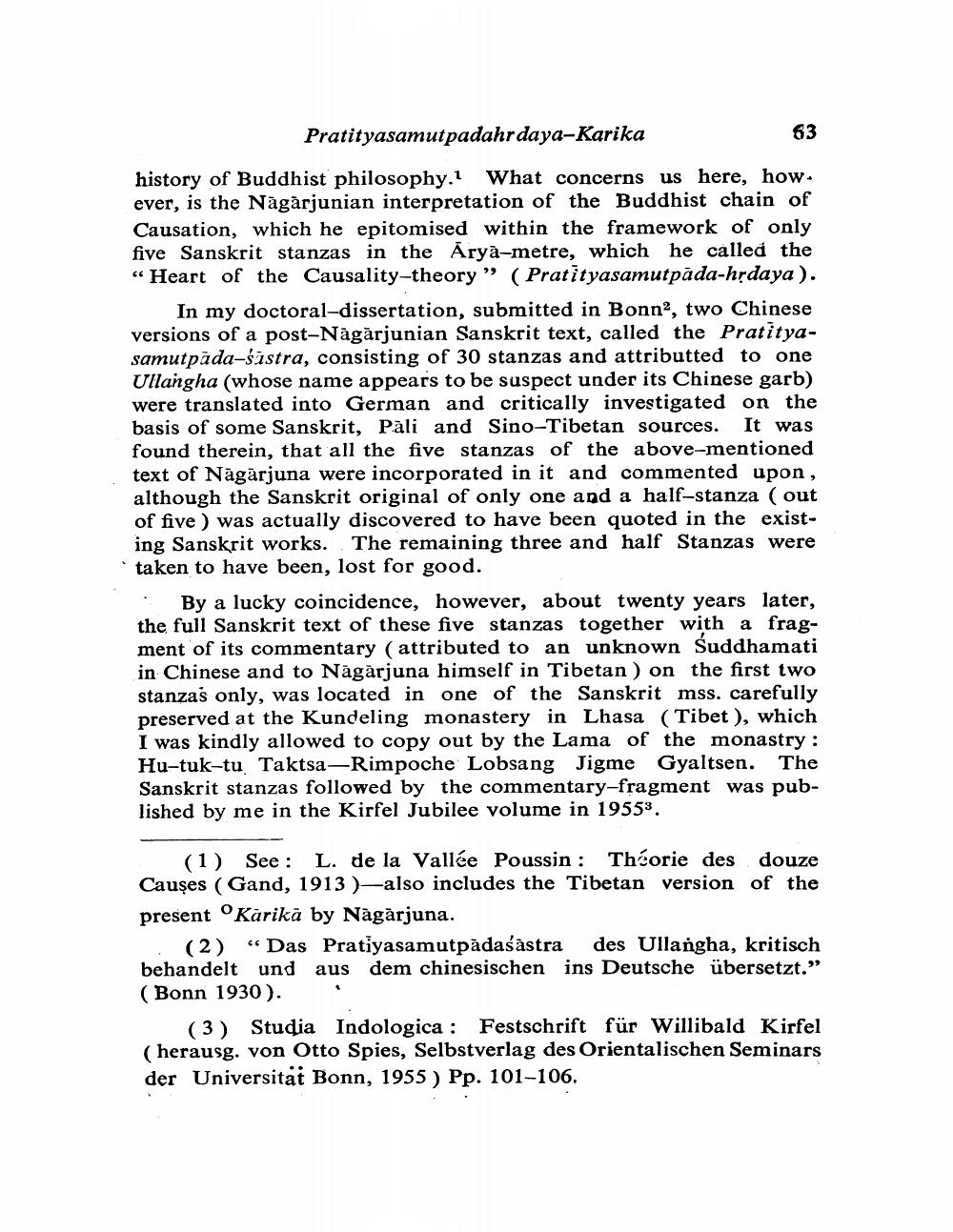Book Title: Encore Pratityasamutpadahrdaya Karika Of Nagarjuna Author(s): V V Gokhale Publisher: V V Gokhale View full book textPage 2
________________ Pratit yasamutpadahr daya-Karika 63 history of Buddhist philosophy. What concerns us here, how. ever, is the Nagarjunian interpretation of the Buddhist chain of Causation, which he epitomised within the framework of only five Sanskrit stanzas in the Arya-metre, which he called the “ Heart of the Causality-theory" (Pratityasamutpada-hrdaya). In my doctoral dissertation, submitted in Bonn, two Chinese versions of a post-Năgărjunian Sanskrit text, called the Pratityasamutpăda-śastra, consisting of 30 stanzas and attributted to one Ullangha (whose name appears to be suspect under its Chinese garb) were translated into German and critically investigated on the basis of some Sanskrit, Pali and Sino-Tibetan sources. It was found therein, that all the five stanzas of the above-mentioned text of Nagarjuna were incorporated in it and commented upon, although the Sanskrit original of only one and a half-stanza (out of five ) was actually discovered to have been quoted in the existing Sanskrit works. The remaining three and half Stanzas were taken to have been, lost for good. . By a lucky coincidence, however, about twenty years later, the full Sanskrit text of these five stanzas together with a fragment of its commentary (attributed to an unknown Suddhamati in Chinese and to Nagarjuna himself in Tibetan ) on the first two stanzas only, was located in one of the Sanskrit mss. carefully preserved at the Kundeling monastery in Lhasa (Tibet), which I was kindly allowed to copy out by the Lama of the monastry: Hu-tuk-tu Taktsa-Rimpoche Lobsang Jigme Gyaltsen. The Sanskrit stanzas followed by the commentary-fragment was published by me in the Kirfel Jubilee volume in 19553. (1) See : L. de la Vallée Poussin : Théorie des douze Cauşes (Gand, 1913 )—also includes the Tibetan version of the present Karika by Nagarjuna. (2) “ Das Pratiyasamutpădaśastra des Ullangha, kritisch behandelt und aus dem chinesischen ins Deutsche übersetzt.” ( Bonn 1930). (3) Studia Indologica : Festschrift für Willibald Kirfel n ald Kirfel Cherause von Otto Sche ( herausg. von Otto Spies, Selbstverlag des Orientalischen Seminars der Universität Bonn, 1955) Pp. 101-106.Page Navigation
1 2 3 4 5 6 7
